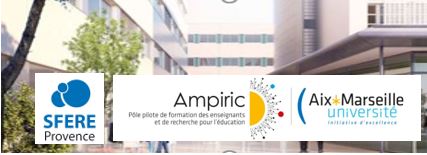RÉSUMÉ
Les enquêtes internationales montrent que les élèves français ont des scores faibles en lecture, et surtout en compréhension, par rapport à la moyenne européenne (e.g., Martin et al., 2017). Il semble alors crucial de développer des outils efficaces pour améliorer la compréhension des jeunes enfants français. Plusieurs études ont déjà montré que des approches explicites améliorent les performances en compréhension des enfants d'âge préscolaire anglais (Fricke et al., 2013) et français (Bianco et al., 2010, 2012). Dans le cadre du projet de recherche Lili-CP visant à élaborer de nouveaux outils pour un enseignement efficace du langage oral et écrit au CP, nous avons créé un programme d'entraînement explicite à la compréhension d'anaphores fréquentes (les pronoms) dans les textes. L'étude présentée vise à tester l'efficacité de ce programme sur la compréhension orale et écrite des lecteurs débutants.
Un paradigme pré-test/intervention/post-test a été réalisé avec 10 classes de CP volontaires. Dans chaque classe, deux groupes d'élèves ont été constitués par tirage au sort : un groupe expérimental (entrainement explicite, n = 82) et un groupe contrôle actif (entrainement traditionnel à partir d'albums, n = 80). Pendant la phase d'intervention, les élèves des deux groupes ont participé à sept séances d'entrainement de 30 minutes, réparties sur quatre semaines. Lors du pré-test et du post-test, les participants ont été évalués sur leur capacité à comprendre des textes et des phrases comprenant des pronoms.
Les analyses (modèles mixtes) révèlent un effet bénéfique de l'entrainement explicite sur la compréhension de phrases, par rapport à l'entrainement traditionnel. Aucun effet significatif n'a été démontré sur la compréhension de textes. Nous discuterons des implications que peuvent avoir ces résultats sur les pratiques pédagogiques pour l'enseignement de la compréhension. Enfin, nous conclurons sur l'intérêt d'une méthodologie scientifique et d'une collaboration avec le monde de l'édition scolaire dans l'élaboration des outils pédagogiques.
MOTS-CLÉS
Compréhension, stratégie d'apprentissage, pronoms, cours préparatoire (CP)
ABSTRACT
International comparisons show that French students have low scores in reading and especially in comprehension compared to the European average (e.g., Martin et al., 2017). It seems crucial to develop effecient tools to improve the comprehension performances of young French children. Several studies have found that explicit approaches improve comprehension performance for English preschooler (Fricke et al., 2013) as well as for French ones (Bianco et al., 2010, 2012). In the context of the Lili-CP research project, which aims to develop new tools for effective oral and written language instruction in CP, we have created an explicit training program for understanding frequent anaphors (pronouns) in texts. The study presented here aims to test the effectiveness of this program on the oral and written comprehension of beginner readers.
A pre-test/intervention/post-test paradigm was carried out with 10 classes of voluntary CP. In each class, two groups of students were randomly selected: an experimental group (explicit training, n = 82) and an active control group (traditional training from albums, n = 80). During the training phase, students participated to seven 30 minutes training sessions, over four weeks. In the pre- and post-test, participants were assessed on their ability to understand texts and sentences with pronouns.
Analyses (mixed models) reveal a positive effect of explicit training on sentence comprehension compared to traditional training. No significant effect was demonstrated on reading comprehension. We will discuss the implications that these results may have for teaching practices for the teaching of comprehension. Finally, we will conclude on the interest of a scientific methodology and collaboration with the world of educational editing in the elaboration of pedagogical tools.
KEYWORDS
Comprehension, learning strategy, pronouns, first grade
REFERENCES
Bianco, M., Bressoux, P., Doyen, A.-L., Lambert, E., Lima, L., Pellenq, C., & Zorman, M. (2010). Early Training in Oral Comprehension and Phonological Skills : Results of a Three-Year Longitudinal Study. Scientific Studies of Reading, 14(3), 211‑246. https://doi.org/10.1080/10888430903117518
Bianco, M., Pellenq, C., Lambert, E., Bressoux, P., Lima, L., & Doyen, A.-L. (2012). Impact of early code-skill and oral-comprehension training on reading achievement in first grade. Journal of research in reading, 35(4), 427–455.
Fricke, S., Bowyer‐Crane, C., Haley, A. J., Hulme, C., & Snowling, M. J. (2013). Efficacy of language intervention in the early years. Journal of Child Psychology and Psychiatry, 54(3), 280‑290. https://doi.org/10.1111/jcpp.12010
Martin, M. O., Mullis, I. V., & Hooper, M. (2017). Methods and Procedures in PIRLS 2016. International Association for the Evaluation of Educational Achievement.

 PDF version
PDF version
